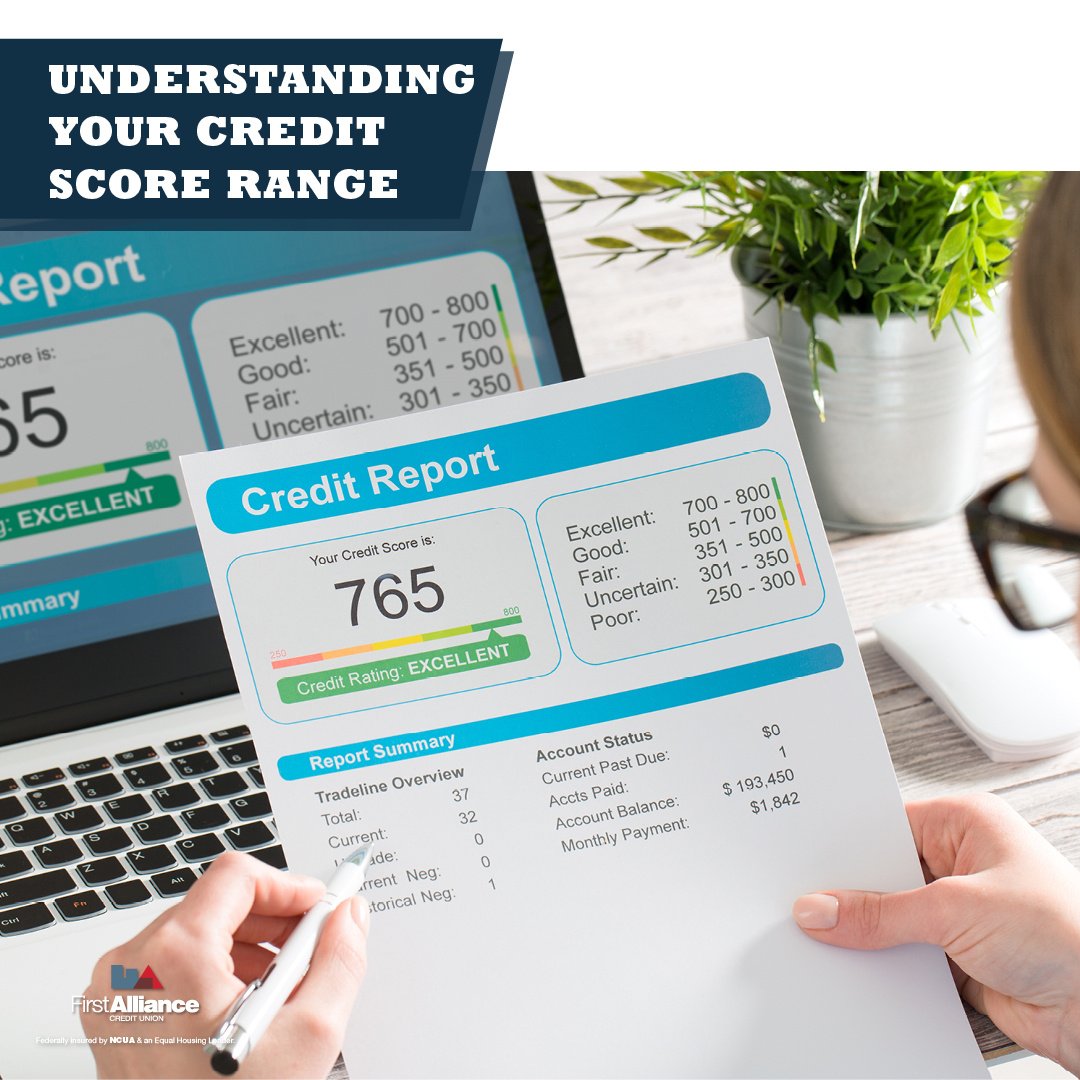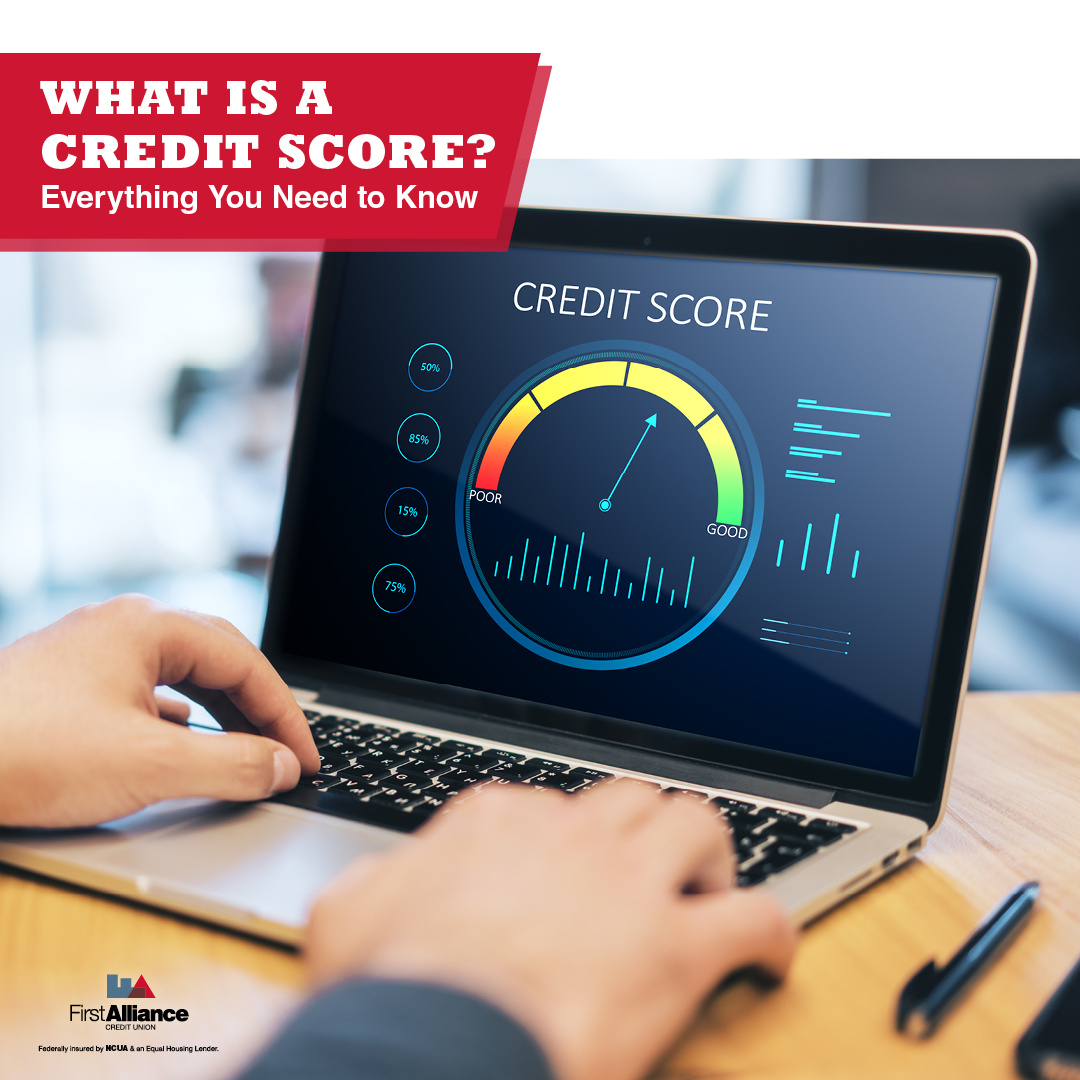Understanding Credit Scores
If you’ve used credit in the past, you probably have a credit score. What is a credit score? It's a number that reflects how you’ve managed your...

So, you’re just about to sign the lease on your first apartment, or maybe you’ve got your heart set on a new car, but suddenly the words “credit score” come up and you feel out of your depth. No worries—we’ve got you covered. A solid credit score can be your golden ticket to better interest rates, smooth approvals, and greater peace of mind. It doesn’t matter if you’re brand-new to credit or starting over after a major life change—understanding how credit scores work could save you thousands and keep you on track for your biggest goals. Ready to learn exactly what a credit score range is and how to make it work for you? Read on for everything you need to know.

What is a ‘good’ credit score for someone just starting out, and how do I reach it?
Different models vary, but generally 670 to 740 is considered “good.” If you’re new to credit, aiming for the mid-to-high 600s is already a strong start. Achieving (and surpassing) this range requires consistent positive habits—on-time payments, low credit card balances, and mindful spending.
How do I build credit from scratch if I’ve never had a credit card or loan before?
Start with a secured credit card: You put down a deposit and receive a credit limit matching that deposit.
Become an authorized user: A trusted friend or family member can add you to their credit card. If they have a positive payment history, it can help you.
Pay on time, every time: Missing payments can sink your score faster than you’d imagine.

Who are the three main credit bureaus, and why do they each show a different credit score?
The three big players are Equifax, Experian, and TransUnion. Each one collects data from lenders (like your credit card company or bank) about how you handle money, but not all lenders report to every bureau. That means your credit report—and the resulting score—may vary slightly among the three. It’s sort of like three people telling the same story in slightly different ways.
Why does credit utilization matter, and what’s the best way to keep it low?
Credit utilization is how much of your available credit you’re actually using. If you have a $1,000 credit limit and regularly carry a $500 balance, that’s 50% utilization—which can lower your score. Aim for under 30%—and under 10% is ideal. Lower balances show lenders you aren’t overstretched.
Do newbie credit users need to worry about errors on their credit report, and how do I dispute them?
Yes—credit report errors are more common than you might think. These mistakes can be anything from incorrect late payments to accounts you never opened. Check your reports free at AnnualCreditReport.com to catch and dispute errors. You can file disputes directly with each bureau or escalate to the Consumer Financial Protection Bureau if necessary.
How often should I check my credit score, and can checking too much hurt my credit?
You can (and should) check your score as often as you like—this is considered a soft inquiry and won’t lower your score. “Hard” inquiries (like when you apply for a new loan or credit card) can dip your score a bit, but a soft check is perfectly safe.
Where can I check my credit score for free, and do I need a credit card to do it?
AnnualCreditReport.com: Currently allows you free weekly access to your credit reports.
Financial apps: Many credit cards, banks, and credit union apps show your score for free (no card required with some services).
Credit bureaus: Some offer free or trial-based score checks directly.
Is it safe (and smart) to use free credit score apps or websites, and how do they make money?
Most reputable sites are secure. They often earn money via ads or by suggesting products (like credit cards or loans). At First Alliance Credit Union, we also have resources to help you track your credit. The key is using providers you trust and reviewing their terms.

Sometimes the worst credit surprises come from those closest to us. What if, as a child, your parent used your credit to turn on utilities (like lights or gas) and then never paid the bill? Identity theft by a parent or guardian is more common than you might think and can severely damage your score. Here’s how to address it:
File a Police Report
It may sound scary to file a report, especially if you love the person who did this. Fortunately, you don’t have to name them. Simply state “someone stole my identity and opened this account.” The main goal is to get that documentation so creditors and bureaus can help fix the damage.
Alert the Major Credit Bureaus
Contact Experian, TransUnion, and Equifax and let them know you’re a victim of identity theft. They can add special codes or alerts to your credit reports, signaling that disputed accounts might not be yours.
Devise a Rebuild Strategy
Once you’ve halted further damage, it’s time to rebuild. Look into secured credit cards, small personal loans, and other financial products that help you establish a positive payment history. Consider working with a financial counselor or credit repair specialist if you need more hands-on guidance.
Have That Tough Conversation
Confronting a family member can be the hardest step. Remember, you’re not at fault. While it’s natural to feel guilty or conflicted, your financial well-being matters. Handle the conversation in your own time, but don’t let fear stop you from taking the formal steps to protect your credit.

How can I quickly raise my credit score if it’s already low?
Pay down card balances: Lower credit utilization can give your score a quick bump.
Make on-time payments: Even a single late payment can be a big setback.
Ask for a limit increase: If used responsibly, a higher credit limit reduces your utilization ratio.
Avoid too many new accounts: Each “hard” inquiry shaves off a few points.
What factors are considered in my credit score, and which ones should I focus on most?
Payment History (35%): Don’t miss those due dates.
Credit Utilization (30%): Keep balances well below your limits.
Length of Credit History (15%): Try not to close old accounts.
Credit Mix (10%): Having different types of credit can help.
New Credit (10%): Applying for many loans or credit cards at once can look risky.
Building a solid credit score takes time. Each on-time payment, each paid-down balance is another step in your journey. And before you know it, you’ll see your score climb into the range you’ve been aiming for—maybe even the elusive 750+ club. But more important than hitting a specific number is the peace of mind and freedom that come with taking control of your financial future.
Ready for more personalized guidance? Contact First Alliance Credit Union today. We’re committed to helping you reach your financial goals—without judgment and without gimmicks—so you can focus on living life on your own terms. Your credit score is more than just a number; it’s a tool to help you build the life you want, one step at a time.

If you’ve used credit in the past, you probably have a credit score. What is a credit score? It's a number that reflects how you’ve managed your...

In the world of personal finance, few things carry as much weight as your credit score. It's a three-digit number that can have a significant impact...

Your credit score plays a major role in your financial life, but understanding what it is and how it works can sometimes feel complicated. Don’t...